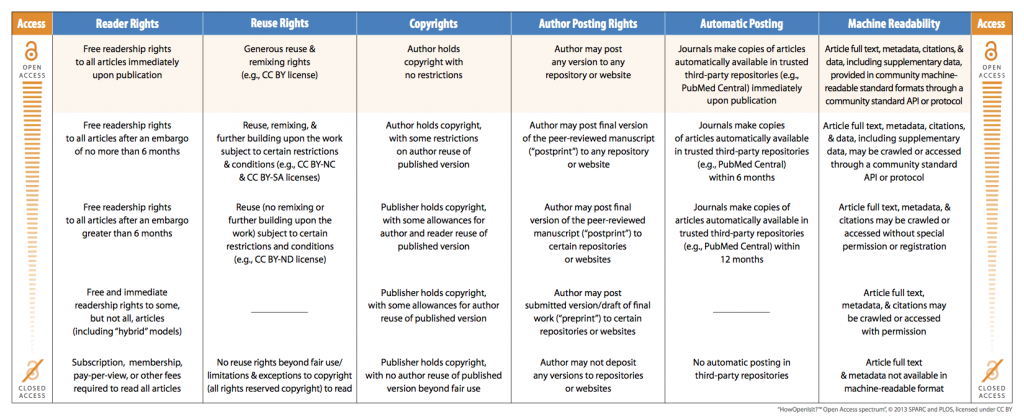Scholarly Communications at Georgia Southern University
- Overview
- News & Happenings This link opens in a new window Toggle Dropdown
- On Demand Workshops Toggle Dropdown
- Past Workshop & Webinar Slides & Videos Toggle Dropdown
- Scholarly Publishing
- Measuring Research Impact Toggle Dropdown
- Copyright Issues
- Institutional Repository Services
- Data Management Services
- Resources for Further Exploration
- Questions? Ask us!
Sources for Journal Quality
Beall's List of Potential Predatory Journals and Publishers (2010-2016)
Open Access Journal Quality Indicators - from Grand Valley State University, these guidelines can help one evaluate open access publications as one considers appropriate publication venues, or invitations to serve as reviewers or editors. See also this article published in the Journal of Librarianship and Scholarly Communication about the development of these guidelines.
Journal Evaluation Tool - from Loyola Marymount University, created by Shilpa Rele, Marie Kennedy, and Nataly Blas. This PDF download from the LMU institutional repository includes steps for evaluating journals, a detailed rubric of criteria, and a scoring table to accompany the rubric.
JournalGuide [Research Square]- JournalGuide uses a “whitelist” approach (similar to Cabell's Journalytics), indexing known journals of quality and providing information on scope, how quickly the journal reviews and publishes papers, where the journal is indexed, open access options, page charges and more. JournalGuide also provides links directly to journal's “instructions for authors” page.
Harzing's Journal Quality List - this collated list of quality journals is based on close to 20 different rankings of more than 900 journals in Economics, Finance, Accounting, Management & Marketing.
"Dear Esteemed Author:" Spotting a Predatory Publisher in 10 Easy Steps - blog post from the Society of Teachers of Family Medicine that describes 10 things to consider when evaluating a scholarly journal
[Source: ACRL Scholarly Communication Toolkit]
OERs vs. Open Access
What's the difference between Open Access resources and Open Educational Resources (OERs)?
Open Access is the free, immediate, online availability of research articles combined with the rights to use these articles fully in the digital environment. Open Access is the needed modern update for the communication of research that fully utilizes the Internet for what it was originally built to do—accelerate research [Source: https://sparcopen.org/open-access/]
In contrast, OERs (Open Educational Resources) are free and openly licensed educational materials that can be used for teaching, learning, research, and other purposes.
[Source: https://wiki.creativecommons.org/wiki/What_is_OER%3F]
- Here is a guide to OER best practices from the University Libraries
Open Access Explained!
Open Access Spectrum
DOAJ video
OA Journal Directories
Sources for Open Access Publications:
- Directory of Open Access Journals (DOAJ) - a community-curated list of open access journals and a good starting point for identifying quality, peer-reviewed open access material. DOAJ also provides a "Best Practices" for publishers, which can be useful when evaluating journals for quality.
- Open DOAR (Directory of Open Access Repositories) [new site forthcoming]
- OpenDOAR is an authoritative directory of academic open access repositories. Each OpenDOAR repository has been visited by project staff to check the information that is recorded here. This in-depth approach does not rely on automated analysis and gives a quality-controlled list of repositories.
- Other resources/factors to consider:
- transparent publishing practices and editorial control;
- publisher is a member of: the Committee on Publication Ethics (COPE); Open Access Scholarly Publishers Association (OASPA); and/or the World Association of Medical Editors (WAME);
- journal is listed in Ulrichsweb Global Serial Directory (including data on peer-review & indexing);
- articles have DOIs
Here are some leading indicators of predatory journals
- Charging exorbitant rates for publication of articles in conjunction with a lack of peer-review or editorial oversight.
- Notifying authors of fees only after acceptance.
- Targeting scholars through mass-email spamming in attempts to get them to publish or serve on editorial boards.
- Quick acceptance of low-quality papers, including hoax papers.
- Listing scholars as members of editorial boards without their permission or not allowing them to resign.
- Listing fake scholars as members of editorial boards or authors.
- Copying the visual design and language of the marketing materials and websites of legitimate, established journals.
- Fraudulent or improper use of ISSNs.
- Giving false information about the location of the publishing operation.
- Fake, non-existent, or misrepresented impact factors.
OA Repositories
Open Access Repositories at Georgia Southern:
Other Repositories,Organizations & Neworks:
- Center for Open Science - Open Science Framework (OSF)
- Inter-University Consortium for Political and Social Research (ICPSR) (GS login required)
- Open Access Scholarly Publishers Association (OASPA)
- Open ICPSR
- Open Science Project
- ROAR (Registry of Open Access Repositories)
- SPARC (the Scholarly Publishing and Academic Resources Coalition)
-
WAME (World Association of Medical Editors)
Discipline-specific e-print Archives:
- arXiv (Physics, Mathematics, & Astrophysics)
- medRxiv and bioRxiv (COVID & SARS preprints)
- socarXiv (Social Sciences)
-
SSRN (Social Science Research Network)

